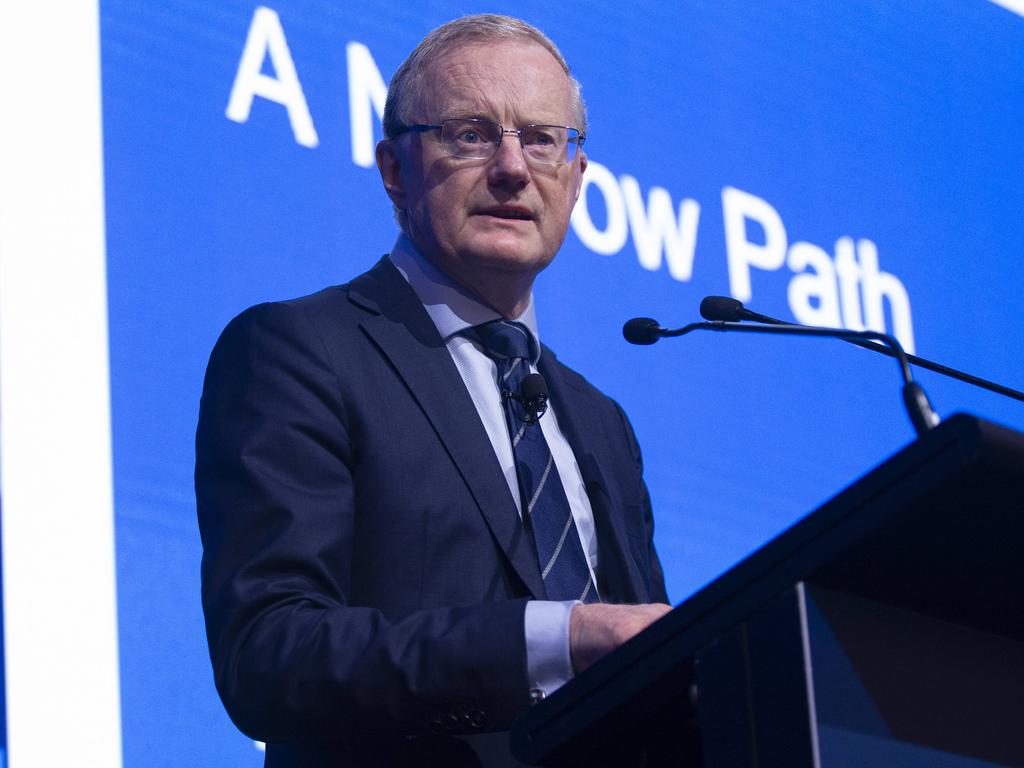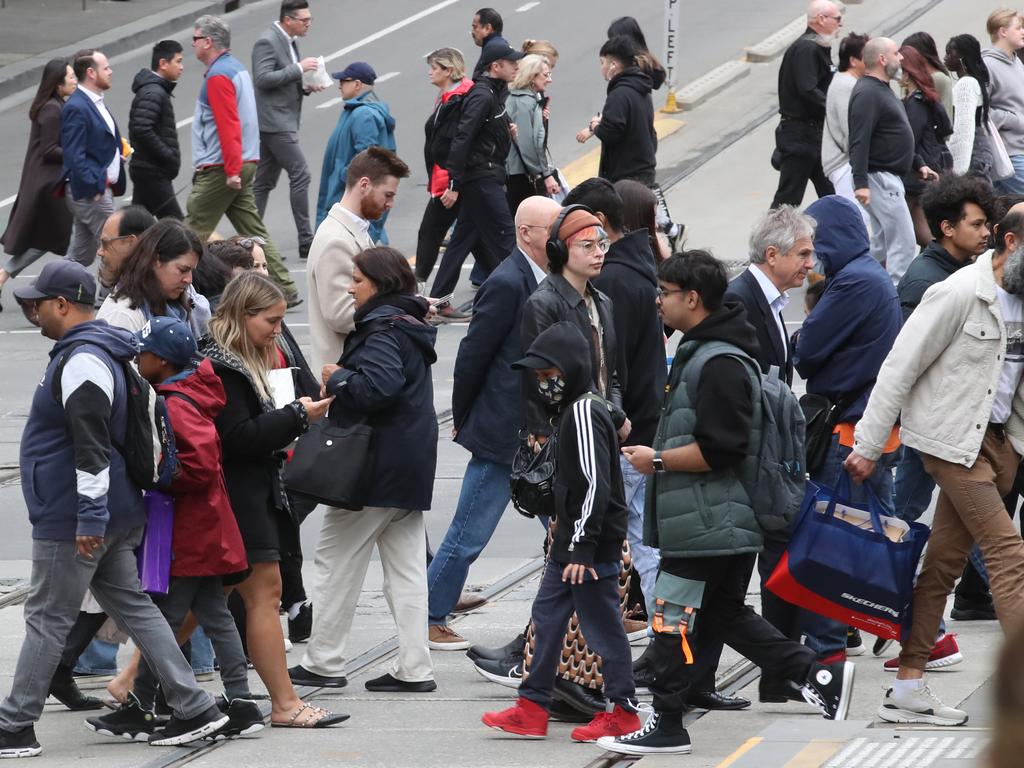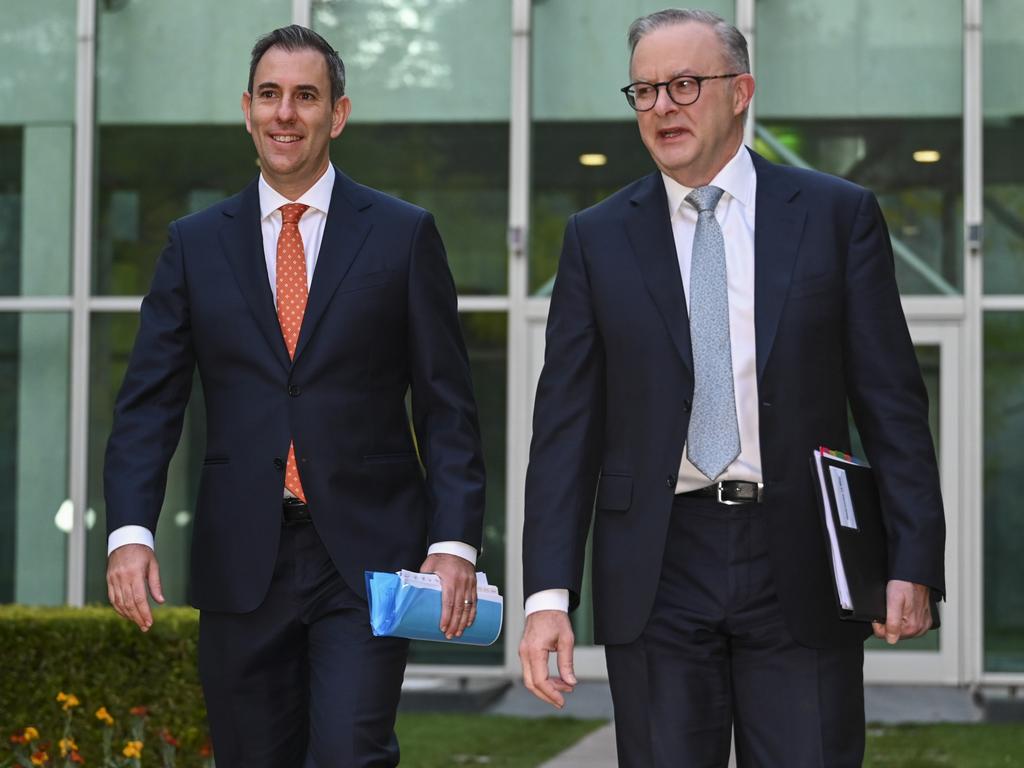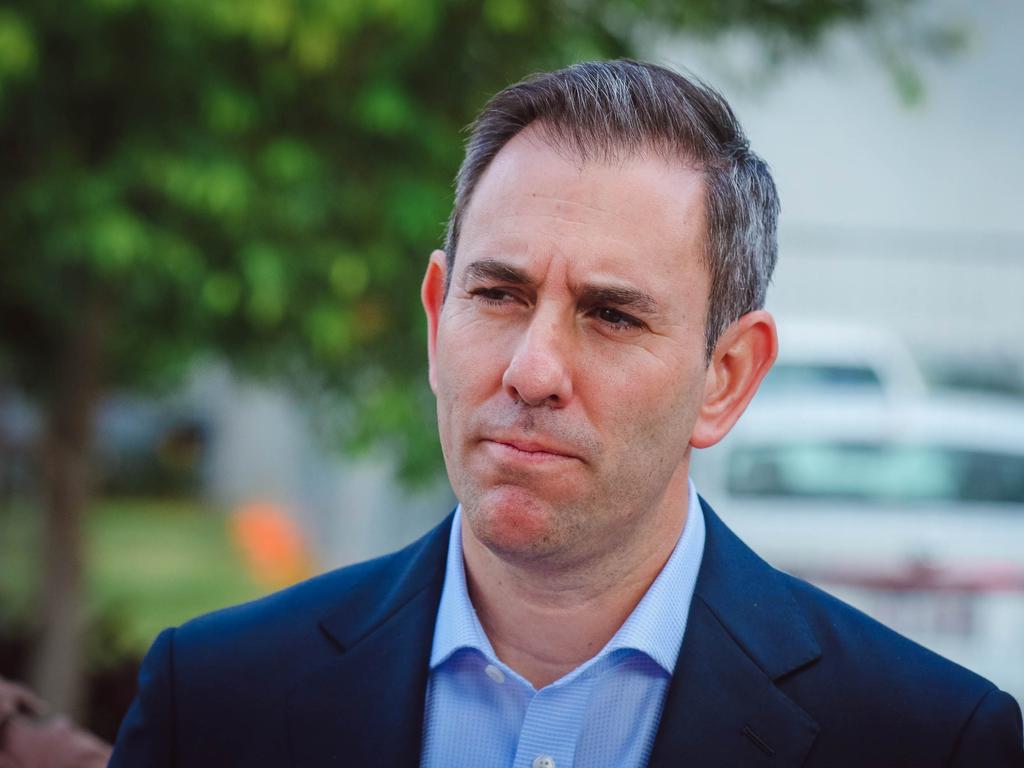It’s now a toss of the coin whether Australia falls into recession
The Brittany Higgins, Katy Gallagher and Lidia Thorpe affair is a sideshow compared with the economic challenges our nation faces.

We now know Gallagher certainly knew days before. Labor is relying on the difference between days and weeks to justify Gallagher’s denials. Weasel words at best.
Not that the conservatives are any better. In 2021 Scott Morrison told the parliament he’d spoken to his staffer Fiona Brown about the saga. She was chief of staff to Reynolds when the assault was alleged to have occurred. Last weekend Brown confirmed to this newspaper that she hadn’t actually spoken to Morrison.
Morrison now claims he may not have had a long sit-down conversation with Brown at the time but he did have brief passing chats, which suggests he never misled the house. Also weasel words.
Peter Dutton won’t care about the hypocrisy because Morrison is yesterday’s man.
Anthony Albanese threw his “1000 per cent support” behind Gallagher so, weasel words or not, he’s backing her. The two are personally and factionally close – the blind eye to parliamentary standards is far removed from Labor’s pious pronouncements in opposition about lifting standards.
By the end of the week former Greens, now independent, senator Lidia Thorpe was using parliamentary privilege to level sexual assault allegations at a fellow senator – a serious complaint made in the most inappropriate way. More appropriately, the Parliamentary Workplace Support Service will conduct an investigation.
As dominant as these events and skirmishes have been this week, they are a sideshow compared with the economic challenges our nation faces. That’s the bigger picture: slowing consumer spending, declining business and consumer confidence, plus predictions of anaemic economic growth for the rest of this year and most of next. The state of the economy is what people care about, not further confirmation that the political class is a pack of hypocrites, largely as bad as one another.
The business community claims the chances of a recession have risen. It’s a toss of a coin whether we fall into one.
Governments can seek to prevent recessions by stimulating economic growth with spending, but in a climate of rising interest rates and ballooning debt that appears unlikely.
I’ve talked in this column before about the economic problems globally, alongside the damage a failure to reform will have on medium to long-term domestic prosperity. As we hit the halfway mark of 2023 it is worth evaluating the shorter-term political consequences of the economic quagmire we face.
The state of the economy is expected to worsen for the rest of this year and probably all of next. The latest the government can realistically head to the polls is about two years from now. But most political analysts expect the Prime Minister to seek re-election at the end of next year rather than in the first half of 2025.
Unusually, the past three federal elections have been mid-year or in May, just after early budgets were handed down. More frequently, governments look to head to the polls towards the end of the calendar year.
For Labor to seek early re-election, it will need to be comfortable that voters give it the benefit of the doubt managing the economy. That will depend on a mixture of decisions taken between now and polling day, and how the opposition measures up as an alternative. Traditionally the Coalition is seen as better economic managers. Fair or not, that’s what polls have suggested for decades.
But incumbency helps, and out of power it is questionable whether the Coalition can hang on to the perceived advantage, especially after the spending it embarked on during the pandemic, blowing the budget and ballooning the debt.
While Jim Chalmers is doing little in any meaningful reforming sense, the Treasurer is calm and professional. Such a measured manner matters compared with the stumbling buffoonery of opposition Treasury spokesman Angus Taylor. Alongside Albanese’s personal popularity it might be enough to win an election despite tough economic times.
But it is likely a one-time trick. Because if Labor doesn’t reform and help usher in better economic times in the aftermath of securing a mandate for a second term, support could drain away quickly. Especially if voters start to sense that their standard of living isn’t what it was before the change of government.
The last time a one-term government lost an election was 1931, during the Depression. However bad the coming years may get, they are unlikely to descend that far.
So history is on Labor’s side, despite the state of the economy and despite its failure so far to confront the need for major reforms.
However, it is worth noting that both of the previous two governments – Labor and Coalition – came awfully close to losing their bids for a second term. Labor scraped home in minority government at the 2010 election, and the Coalition lost a mountain of seats to hold on to government with a one-seat majority in 2016.
Labor’s majority right now is substantially smaller than either of those first-term governments. The difference? They both changed leaders, creating internal instability as well as public confusion when voters were asked to re-elect someone new.
Labor has changed its leadership rules, helping to protect Albanese from such shenanigans. But this is where we need to consider what happens if the voice referendum fails. Albanese is all in, in support of it. A loss reflects on him, his leadership, his authority. It could cause a cascading effect, with at least a full 12 months to go before an election is due.
Can such circumstances change the political climate? Or is the Opposition Leader simply too unpopular to capitalise on Albanese taking such a hit? Is there anyone else the Liberals could turn to if that is the case?
Surveying the Liberal partyroom it doesn’t seem like it. Josh Frydenberg would be a viable alternative, despite the profligacy of the pandemic years. He’d certainly relish the economic fight. But he can’t do that from outside the parliament while taking on an incumbent teal, hoping to return.
To defy history and slide back into government after one term, everything would need to go right for the Coalition, and everything would need to go wrong for the rest of us via the state of the economy. Even then it might not be enough if the Liberals lose the benefit of the doubt on economic management.
Peter van Onselen is a professor of politics and public policy at the University of Western Australia and Griffith University.








The parliamentary week started with accusations that Finance Minister Katy Gallagher misled parliament over what she knew about the Brittany Higgins rape allegations before they went public. Former defence minister Linda Reynolds accused Gallagher of knowing about it weeks in advance of the story breaking.